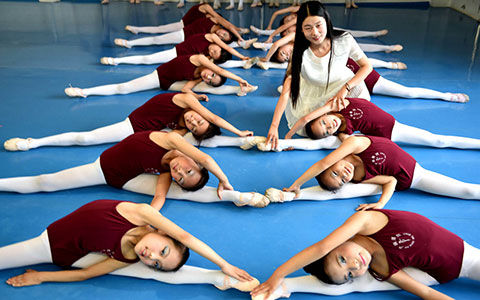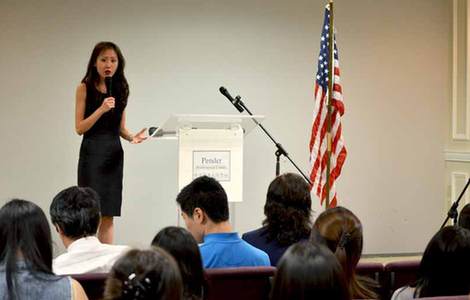Greater independence needed to increase effectiveness of Chinese think tanks
Updated: 2015-06-30 10:09
By Cui Shoufeng(chinadaily.com.cn)
|
||||||||
China is experiencing a golden age for think tanks, but some experts say there is still much to be done in the field, said some experts at the 4th Global Think Tanks Summit in Beijing on June 27.
As an integral part of the summit which has been held since 2009, the forum on “the role of think tanks”, hosted by the Chongyang Institute for Financial Studies affiliated with Renmin University of China, witnessed a host of constructive opinions from experts at home and abroad.
The Chinese government has become increasingly reliant on local think tanks for policymaking as the country now plays a bigger role in international affairs, said Fu Ying, director of the Foreign Affairs Committee of the National People's Congress. “To recruit world leading think tanks, China should adopt an approach that serve its own interests without being disconnected from the global practices,” she added.
Based on his decade-long research on international think tanks, James McGann, director of the Think Tanks and Civil Societies Program with the University of Pennsylvania, said that competition should be encouraged between government-led and non-governmental think tanks. He also suggested that Chinese scholars need to be granted wider access to key government information in order to match their foreign counterparts.
In addition, they are supposed to use English to communicate and conduct professional peer reviews, said Srikanth Kondapalli, a professor of Chinese Studies at India’s Jawaharlal Nehru University.
The lack of financial independence is a major problem for many Chinese think tanks, which are highly dependent on governmental funding, commented Huang Renwei, Vice Dean of the Shanghai Academy of Social Sciences. “Tax reform is needed to allow private capital to fund think tanks suffering from restricted funds”, said Huang.
His proposal was echoed by Zhao Kejin, an associate professor of international relations of Tsinghua University, who believed an efficient fund-raising system is key to bringing out the best in think tanks. “Think tanks are not profitable yet generate valuable ideas in the public interest, and they may end up falling prey to political power without sufficient social funding”, he explained.
- Health survey finds Chinese people have grown taller, stronger
- State Council demands accelerated housing renovation
- East China's 'most beautiful' high-speed rail opens
- Uygur family saves Han orphan
- Tourists amazed by artificial water cascades in Henan
- Greater independence needed to increase effectiveness of Chinese think tanks
- Japan's Diet gets 1.65m signatures against security bills
- Thailand's first MERS case declared free of deadly virus
- US, New Zealand to discuss Pacific co-op
- Beijing and Brussels unlikely to reach consensus on investment synergy
- Hollande, Essebsi vow 'solidarity against terrorism' after attacks
- French beheading suspect was 'normal neighbour'

 Homes on the wheels
Homes on the wheels
 Ten photos you don't wanna miss - June 30
Ten photos you don't wanna miss - June 30
 Man makes run for the money with business
Man makes run for the money with business
 1,000 students sleep in gym to avoid summer heat
1,000 students sleep in gym to avoid summer heat
 China betting big on these 10 industries
China betting big on these 10 industries
 Political ambition
Political ambition
 7 ways to make graduation travel more memorable
7 ways to make graduation travel more memorable
 Rides that turned deadly at amusement parks
Rides that turned deadly at amusement parks
Most Viewed
Editor's Picks

|

|

|

|

|

|
Today's Top News
Obama signs trade bills into law, giving boost to TPP talks
Student arrested for killing girlfriend after China-US operation
Chinese space station for civilian use: Argentina
AIIB shows world’s economic center moving East: Opinion
European visit to find economic synergies
Disney bans selfie sticks at theme parks over safety concerns
China gets 30% stake in AIIB as bank takes shape
New York prison break ends with shooting of 2nd fugitive
US Weekly

|

|






